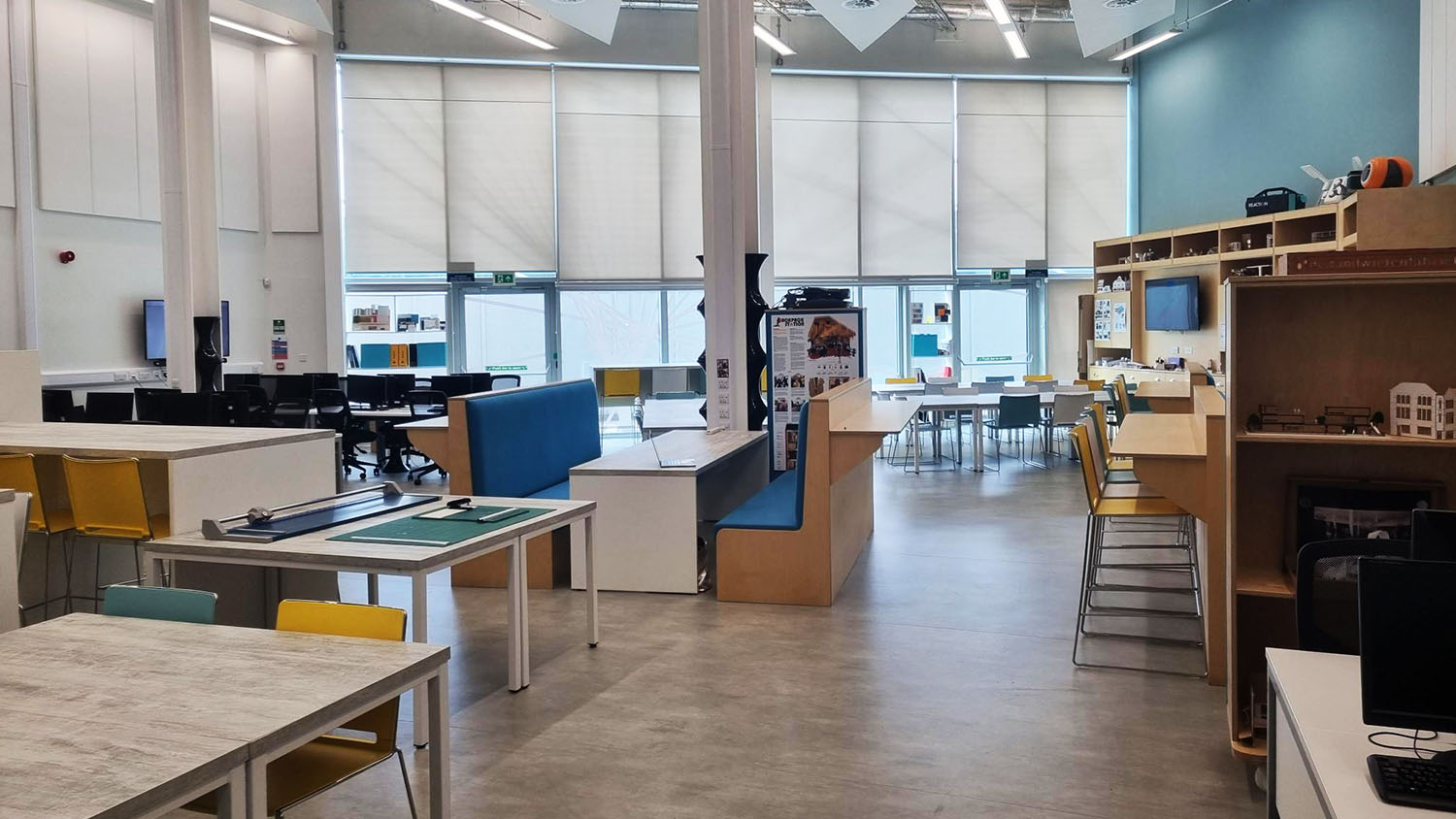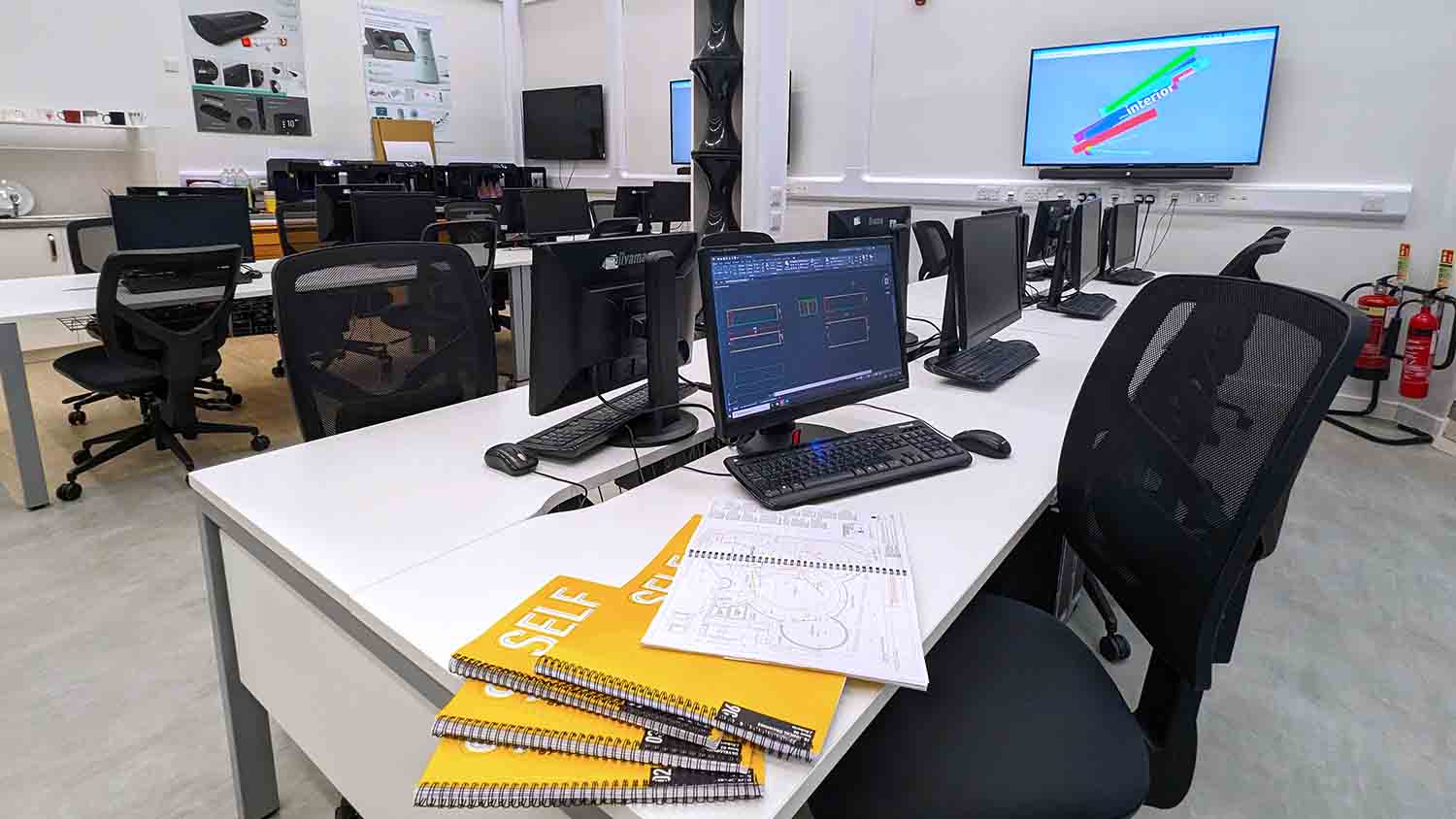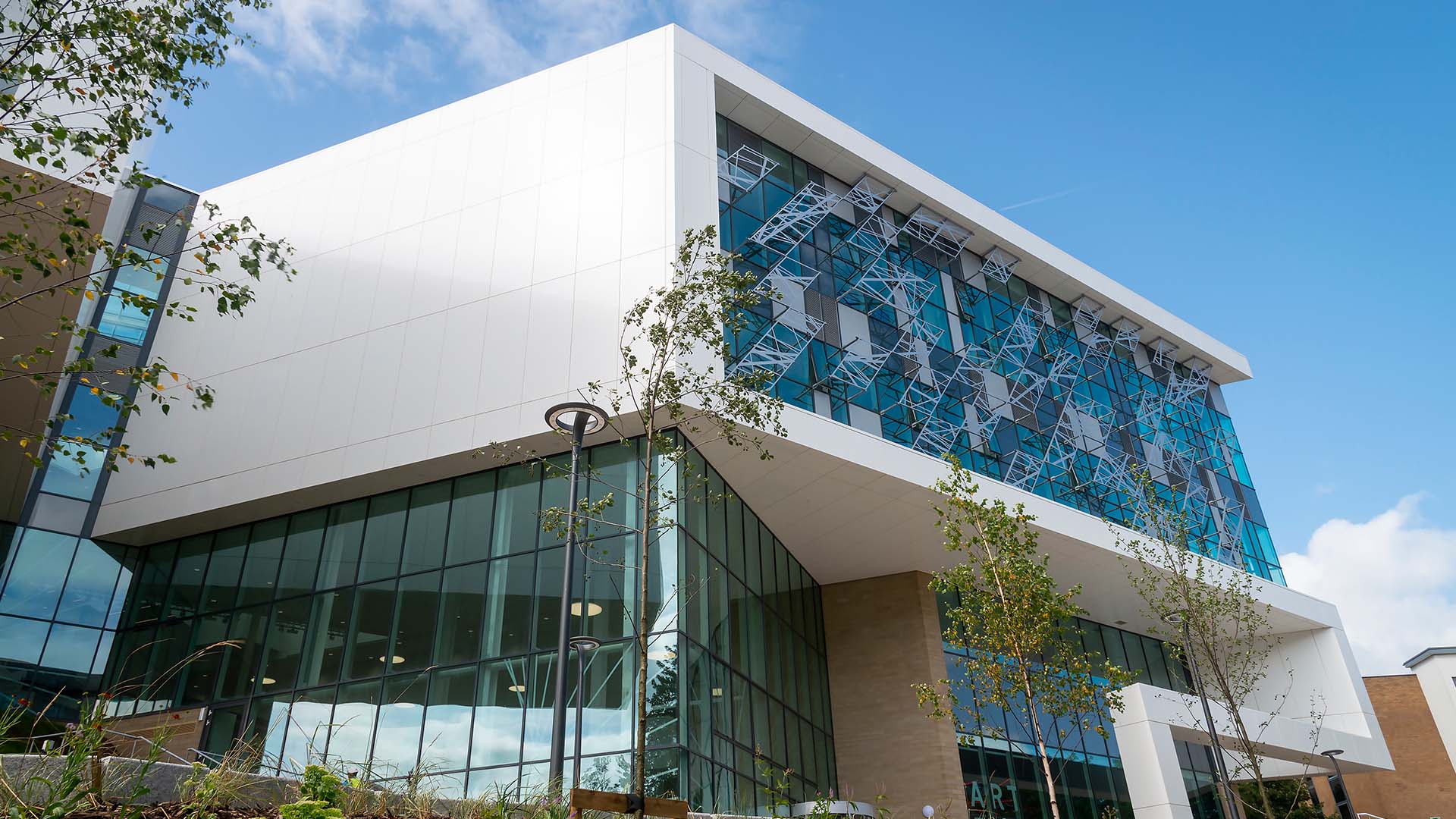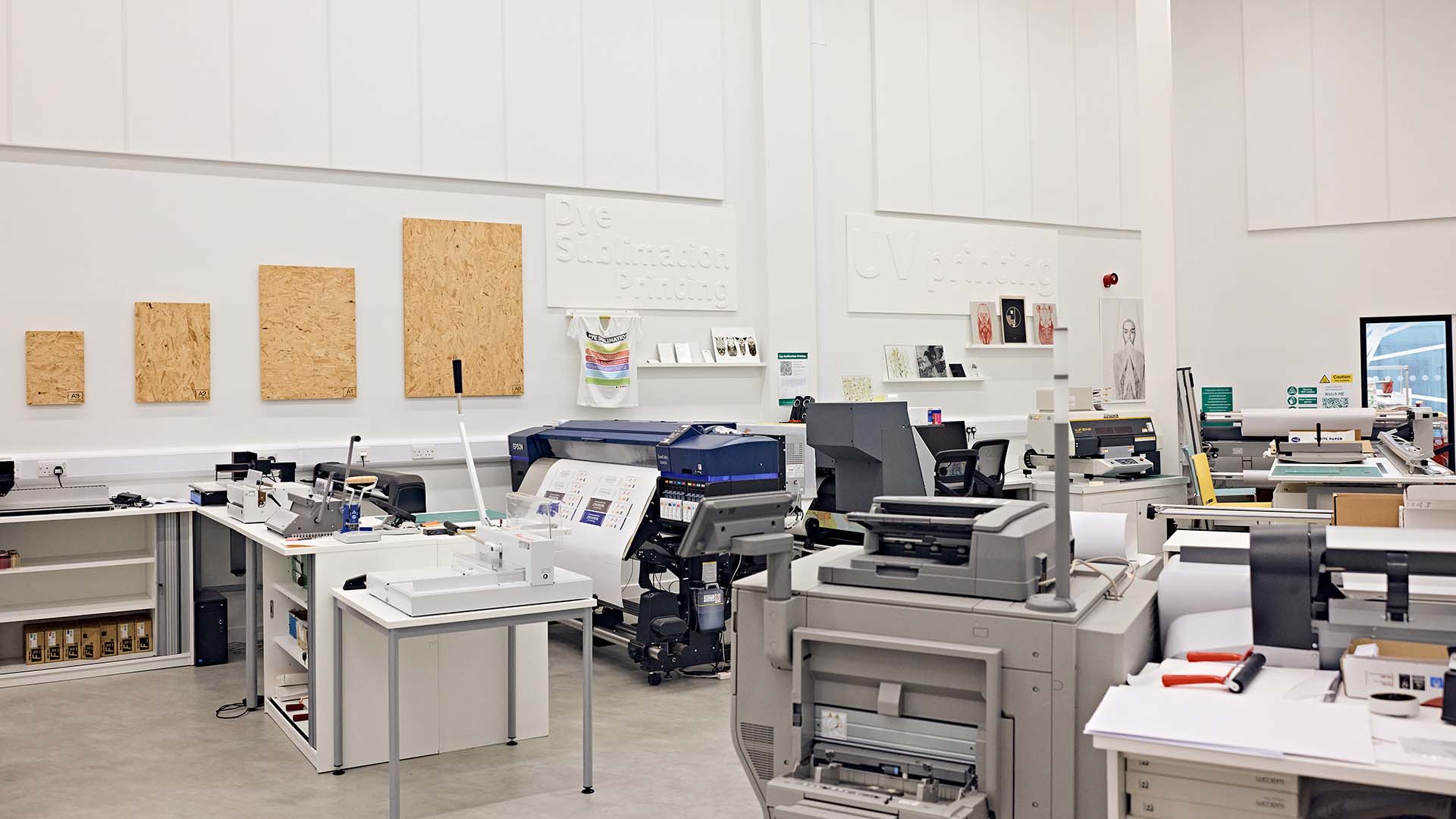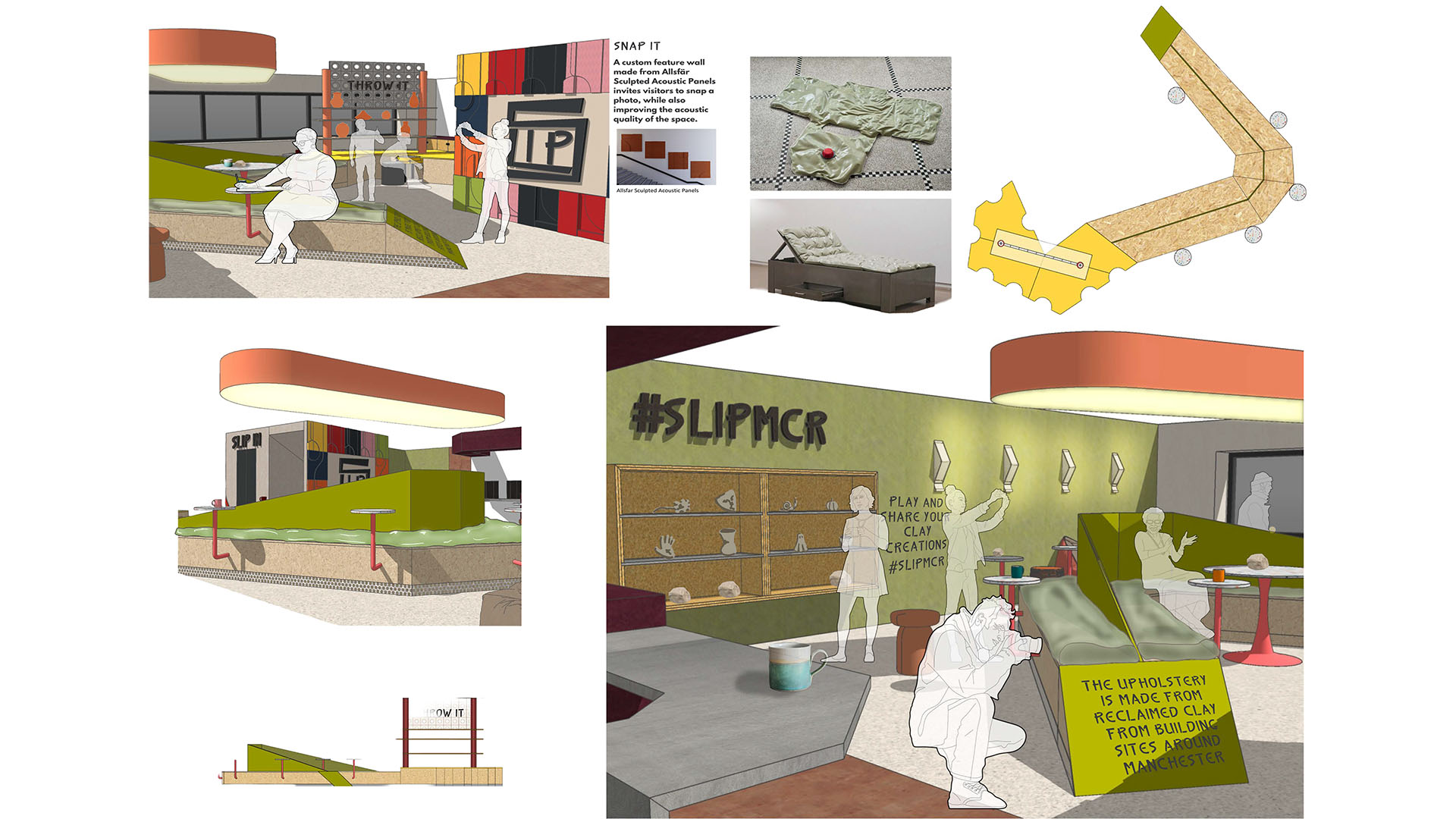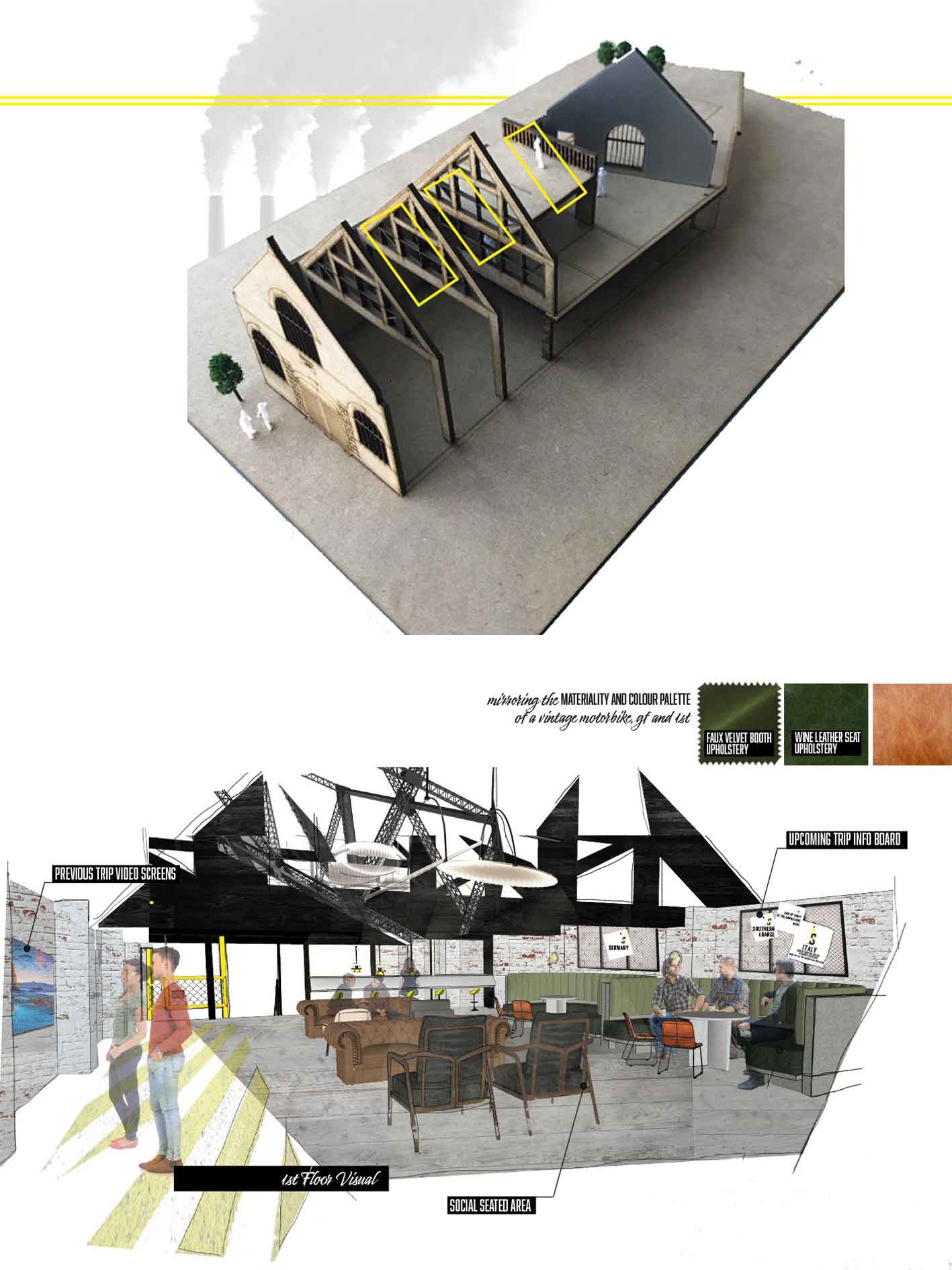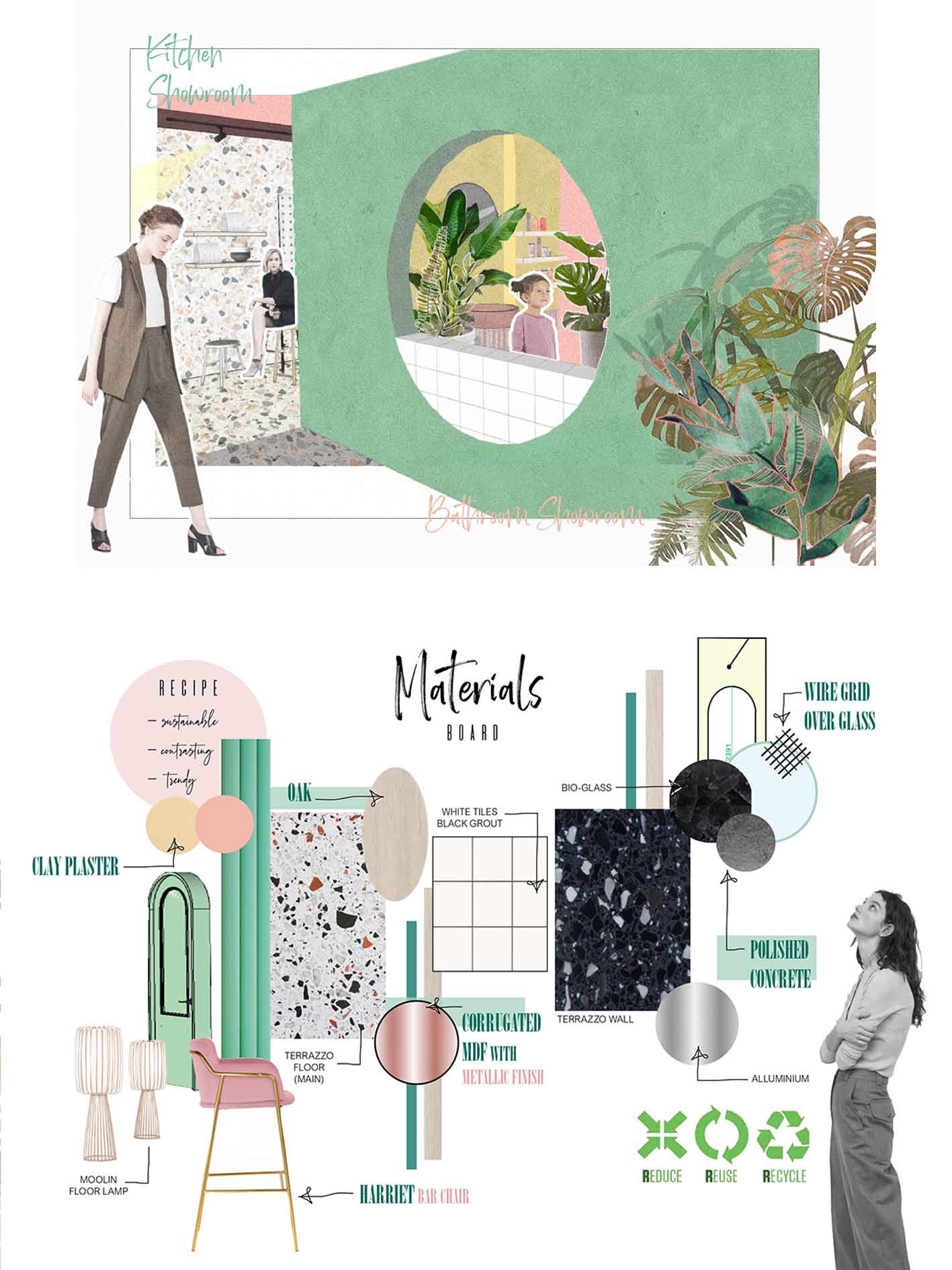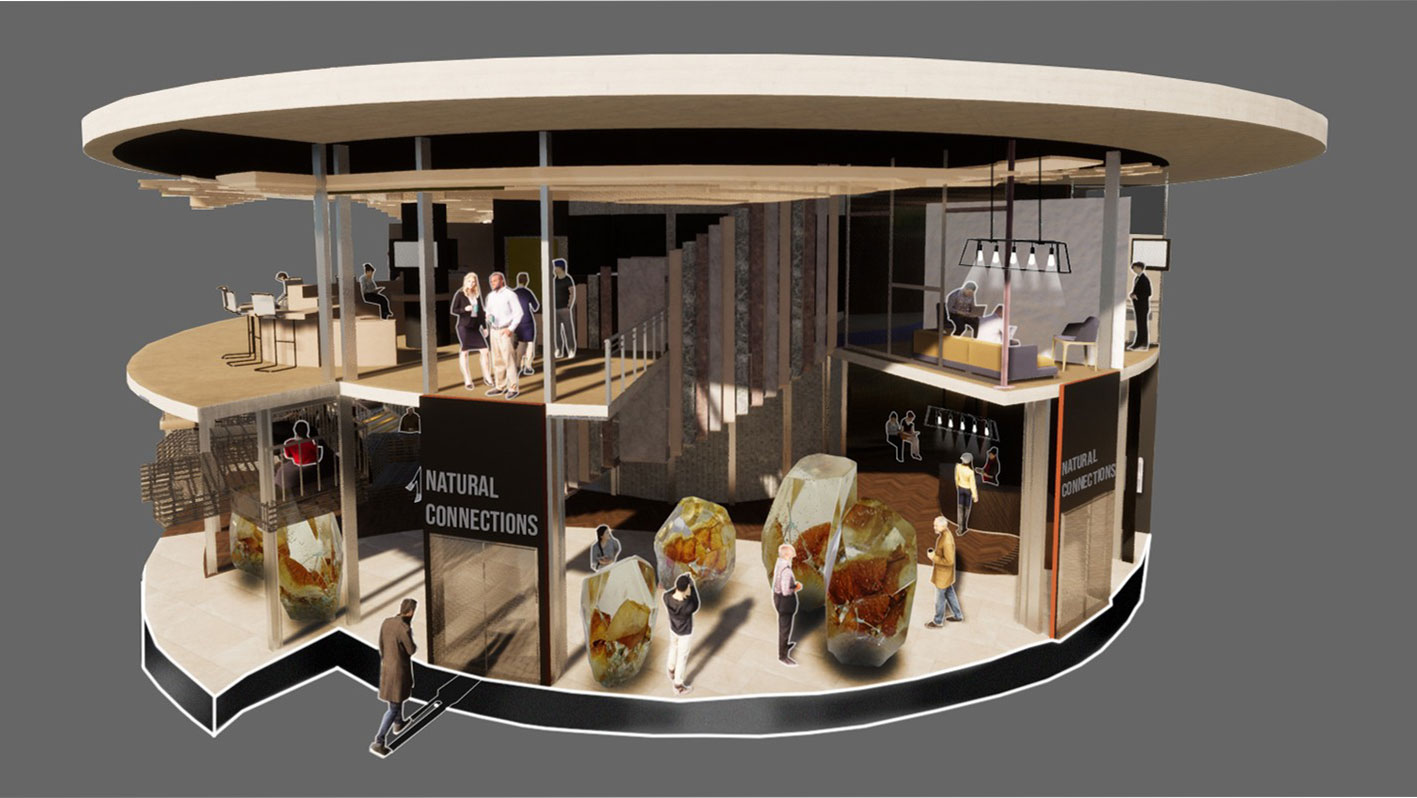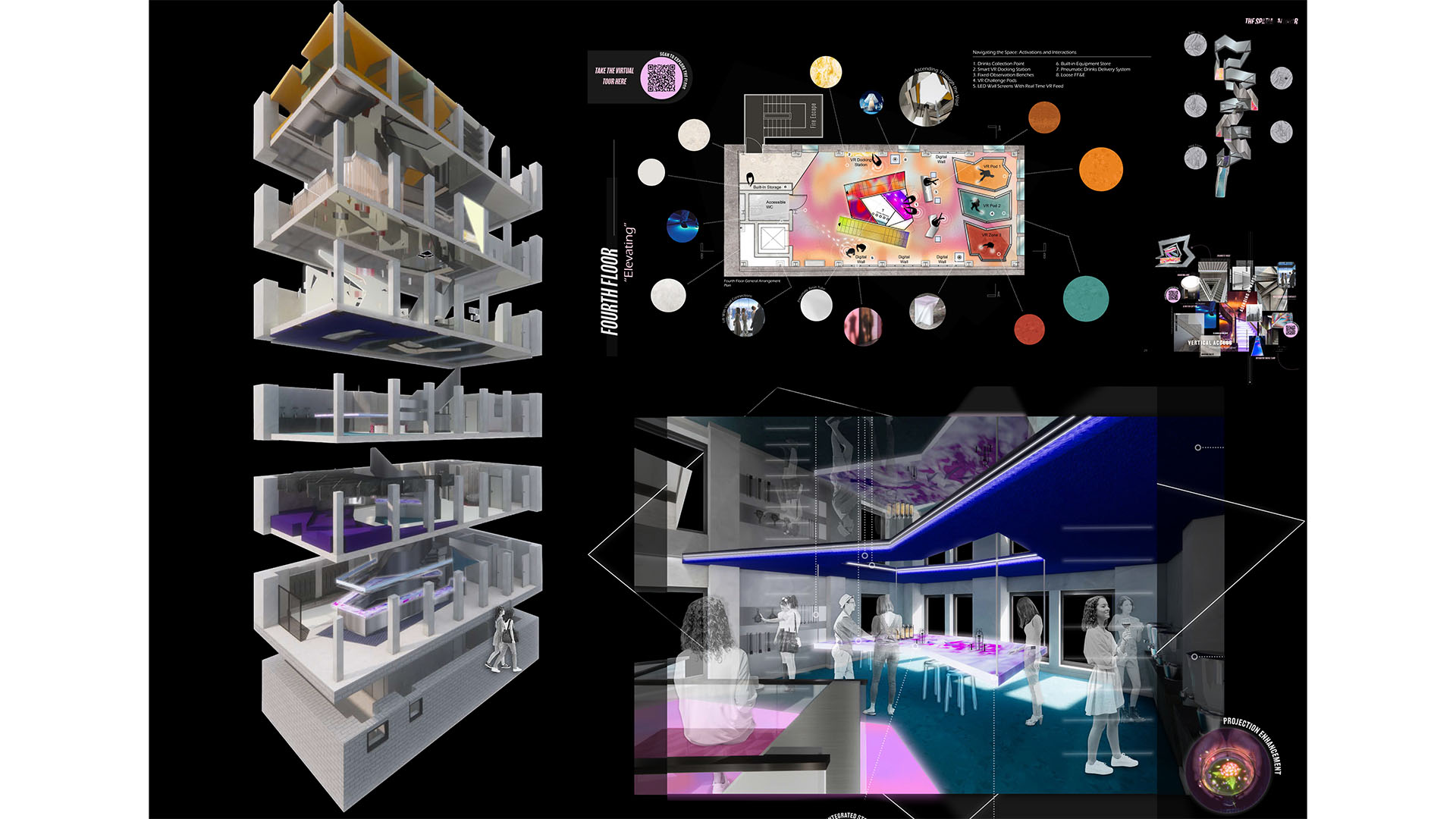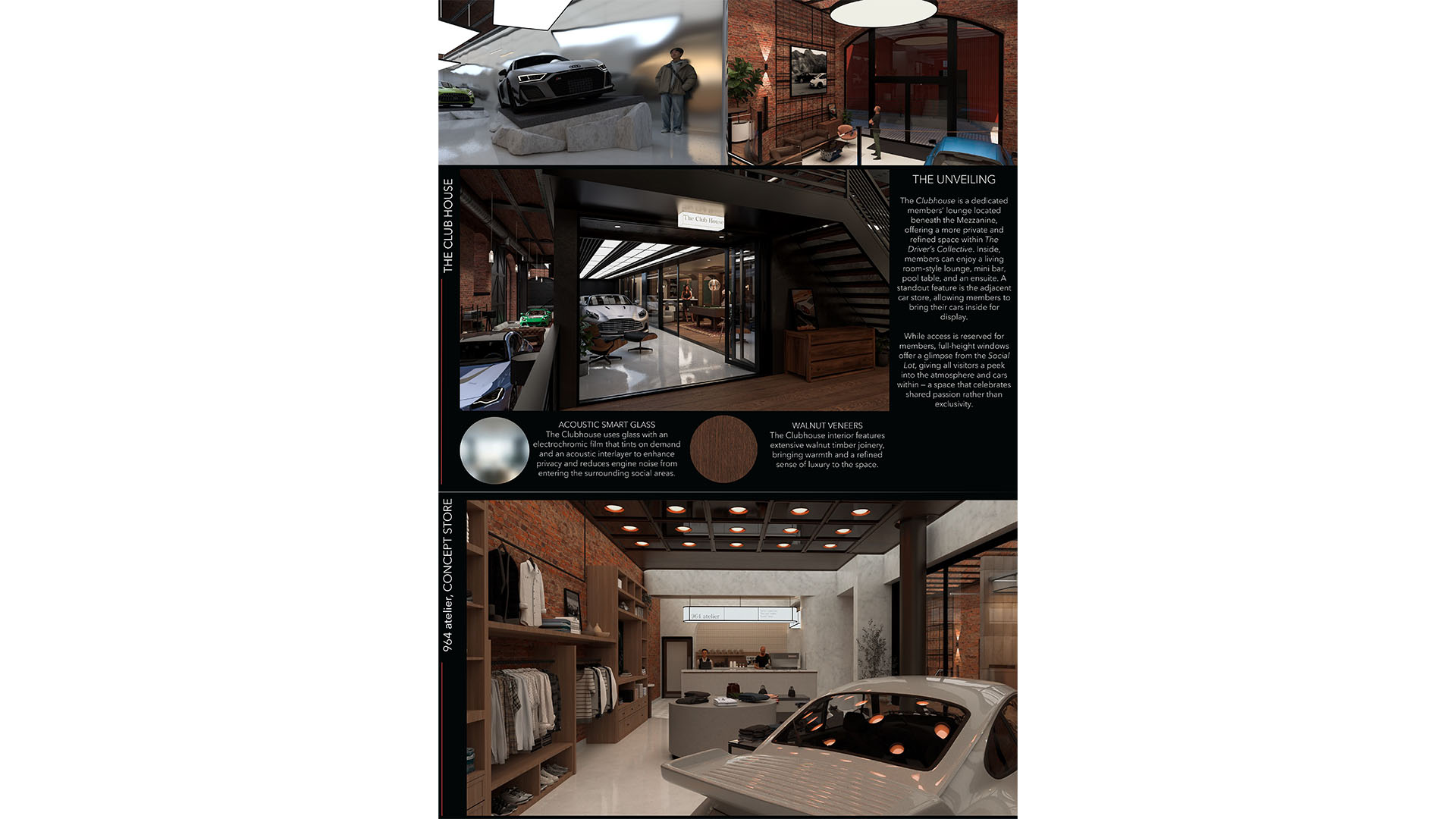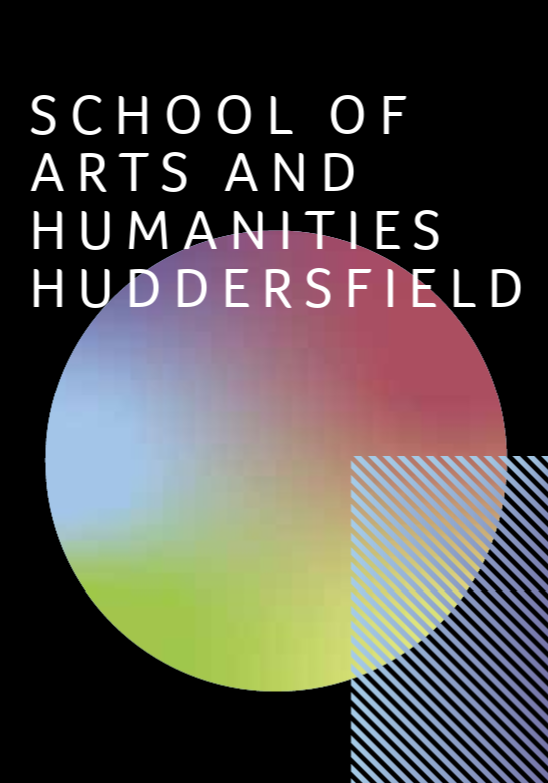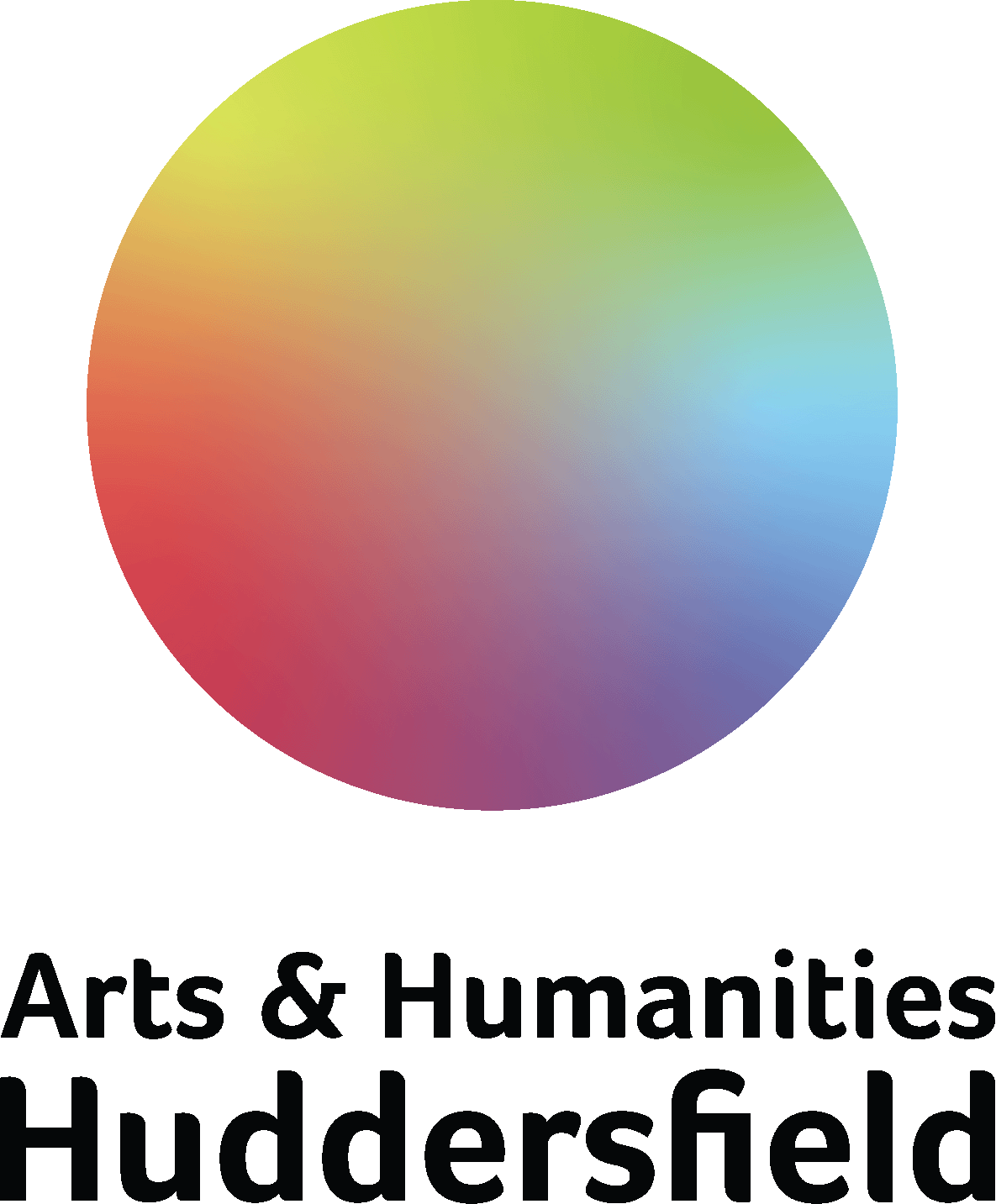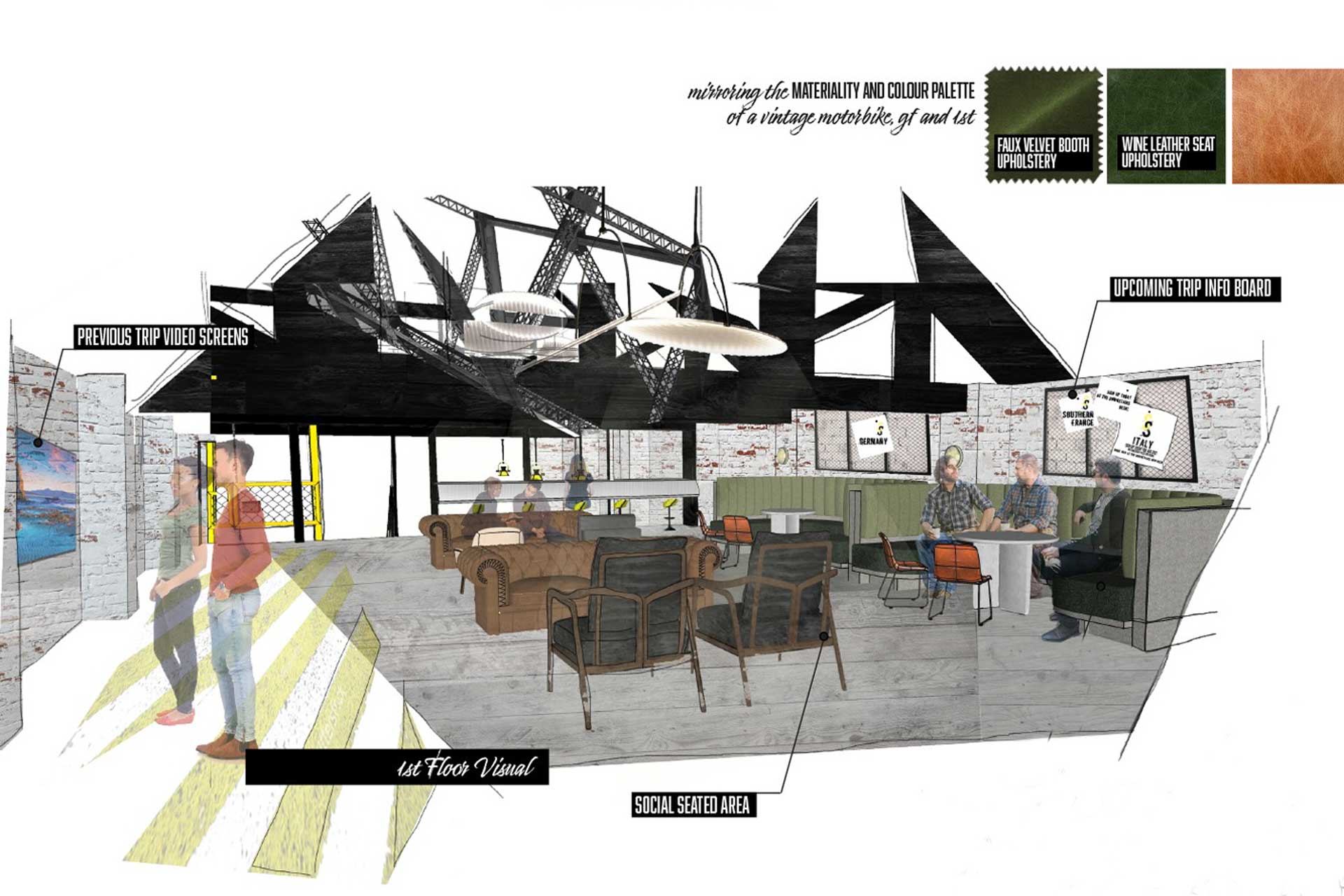
Interior Design BA(Hons)
Start Dates
21 September 2026
Duration
3 years full-time 4 years inc. placement year
UCAS Tariff
120-104
Overview
Why choose Huddersfield for this course?
- Work in professional-standard studios with open access and expert support.
- Build a portfolio through live briefs, projects, and competitions.
- Develop practical and creative skills to launch your career in interior design.
Interior Design at Huddersfield is about turning imagination into inspiring, functional spaces. You’ll explore creative ideas, current design thinking, and practical solutions, developing the skills to become a professional interior designer. Through hands-on projects, workshops, live briefs, and competitions, you’ll learn to transform interiors across a range of typologies while building your own distinctive portfolio.
You’ll study in the award-winning Barbara Hepworth Building, where open access to professional-standard studios, 3D printers, laser cutters, and specialised software gives you the freedom to experiment, innovate, and bring your ideas to life. Our tutors and technicians provide one-to-one support, helping you refine your designs and develop both technical and creative expertise.
The course balances creativity with practical skills, giving you a thorough grounding in detailing, specification, and the professional processes behind successful interior design. You’ll also explore interdisciplinary approaches, with opportunities to connect your work to art, illustration, graphic design, and architecture.
By the time you graduate, you’ll have a professional portfolio, the confidence to present your work, and the knowledge to pursue careers in interior design or related creative industries.
Career opportunities after the course *
Interior Designer
Exhibition Designer
Kitchen Designer
Retail Sales/Designers
*Lightcast
Entry Requirements
BBB-BCC at A Level or equivalent.
120-104 UCAS tariff points from a combination of Level 3 qualifications.
Merit at T Level.
DMM-MMM in BTEC Level 3 Extended Diploma.
Merit in UAL Level 3 Extended Diploma.
Merit in RSL Level 3 Extended Diploma.
Pass in Diploma Foundation Studies in Art and Design combined with A Level or BTEC qualifications, to total an equivalent of 120-104 UCAS tariff points.
Access to Higher Education Diploma with 45 Level 3 credits at Merit or above
120-104 UCAS tariff points from International Baccalaureate qualifications.
If your first language is not English, you will need to meet the minimum requirements of an English Language qualification. The minimum for IELTS is 6.0 overall with no element lower than 5.5, or equivalent. Read more about the University’s entry requirements for students outside of the UK on our International Entry Requirements page.
Other suitable experience or qualifications will be considered. For further information please see the University's minimum entry requirements.
If you do not have the appropriate qualifications for direct entry to this degree you may be able to apply to our Art, Design and Architecture Foundation Pathway Degree.
Course Details
Choose one from:
For more information on when and how we update our modules please see the ‘Legal Information’ section below.
Teaching and Assessment
Discover what to expect from your tutor contact time, assessment methods, and feedback process.
Global Professional Award
At Huddersfield, you’ll study the award-winning Global Professional Award (GPA) alongside your degree* — so you’re ready for the career you want, whatever subject you choose.
Placements
The course offers an optional one-year (36 weeks minimum) work placement after the second year, in the UK or abroad. This will give you the opportunity to gain valuable hands-on experience, insight into your chosen career and open up your graduate employment prospects. Our Placement Unit and academic staff have excellent industry links and can support you in applying for and finding your placement(s), as well as during your placement year.
Students on the course have previously taken up placement opportunities with companies including: Edge - London; Spatialized - Wakefield; Keane Brands - Birmingham; Concrete - Amsterdam; Fitch - London; PDS Design and Build – Wakefield; Concept IDL – Sheffield and Green Room Interiors – Leeds.
The knowledge I gained on my placement at a luxury residential design studio not only helped me during final year but also gave me skills to take forward on to work life.
- Georgia Clarke
Interior Design BA(Hons)
Your Career
The course aims to help you to develop the skills needed to work within interior architecture and design firms as well as focused retail, workplace, leisure and hotel design companies around the world.
You'll be encouraged to take part in workshops, live briefs and international design competitions. It's all structured to get you ready for employment once you've graduated. Recent graduates have gone on to work at companies such as Adam & Eve (London), Google (USA), and Studio Tilt (Netherlands).**
Source: **GEMS
83%
Percent of graduates from this subject area were in work or further study 15 months after graduation
* HESA Graduate Outcomes 22/23, UK Domiciled
The course not only pushed my creativity to evolve but taught me the basic software skills that are essential in industry. My tutors provided constant support, I will forever be graTEFul for their guidance and adaption to my preferred methods of working.
- Emma Hardaker
Interior Design BA(Hons) graduate
Fees and Finance
This information is for Home students applying to study at the University of Huddersfield in the academic year 2026/27.
Please note that tuition fees for subsequent years may rise in line with inflation (RPI-X) and/or Government policy.
From January 2027 the UK government is launching a new student funding system for people starting university education. Read more about the Lifelong Learning Entitlement (LLE).
For detailed information please visit https://www.hud.ac.uk/study/fees/
This information is for international students applying to study at the University of Huddersfield in the academic year 2026/27.
Please note that tuition fees for subsequent years may rise in line with inflation (RPI-X) and/or Government policy.
For detailed information please visit https://www.hud.ac.uk/international/fees-and-funding/
Home
The tuition fee for a placement year is £1000. If you go on work experience or work placement, you will need to fund your own travel and/or accommodation costs to and from the placement. Please be aware that if your placement is outside of the UK, you will still be responsible for your travel and living expenses and may need to consider issues like health care and insurance costs.
International
The tuition fee for a placement year is £3,300. If you go on work experience or work placement, you will need to fund your own travel and/or accommodation costs to and from the placement. Please be aware that if your placement is outside of the UK, you will still be responsible for your travel and living expenses and may need to consider issues like health care and insurance costs.
Materials:
You will need to supply your own materials during the course. These include sketchbooks, drawing equipment and printing. The approximate cost of these items in recent years has been £50-70 in year one, £50-70 in year two and £250 in the final year. These costs may vary based on the materials you choose and the approximate costs are given as a guide only.
Scholarships and Bursaries
Discover what additional help you may be eligible for to support your University studies.
Tuition Fee Loans
Find out more about tuition fee loans available to eligible undergraduate students.
What’s included in your fee?
We want you to understand exactly what your fees will cover and what additional costs you may need to budget for when you decide to become a student with us.
If you have any questions about Fees and Finance, please email the Student Finance Team.
Gallery
See below for a glimpse at some of our facilities
A gallery of work by our Interior Design students and graduates.
Explore More
Why Hud
Explore the unique opportunities and resources that make our institution a top choice for students seeking a well-rounded and future-focused education.
More Info
Careers support
We know you’re coming to university to study on your chosen subject, meet new people and broaden your horizons. However, we also help you to focus on life after you have graduated to ensure that your hard work pays off and you achieve your ambition.
Find out more about careers supportStudent support
At the University of Huddersfield, you’ll find support networks and services to help you get ahead in your studies and social life. Whether you study at undergraduate or postgraduate level, you’ll soon discover that you’re never far away from our dedicated staff and resources to help you to navigate through your personal student journey.
See our support servicesTeaching Excellence
Great teaching is engaging and inspiring — it helps you reach your full potential and prepares you for the future. We don’t just teach well — we excel — and we have the awards and recognition to prove it.
Find out moreInspiring Academics
Our researchers carry out world-leading work that makes a real difference to people’s lives. Staff within the Department of Design and Architecture may teach you on this course.
Find out more about our staffResearch Excellence
You’ll be taught by staff who want to support your learning and share the latest knowledge and research.
Find out moreAccommodation
Looking for student accommodation? Huddersfield has you covered. HudLets has a variety of accommodation types to choose from, no matter what your preference. HudLets is the University’s approved accommodation service, run by Huddersfield Students’ Union.
Take a look at your optionsFurther Study
If you want to continue your learning beyond your undergraduate degree, there is a range of financial support available for postgraduate study, including discounts for Huddersfield graduates.
Discover postgraduate coursesLegal information
When you enrol as a student of the University, your study and time with us will be governed by our terms and conditions, Handbook of Regulations and associated policies. It is important that you familiarise yourself with these as you will be asked to agree to them when you join us as a student. You will find a guide to the key terms here, along with the Student Protection Plan.
Although we always try and ensure we deliver our courses as described, sometimes we may have to make changes for the following reasons:
Changes to a course you have applied for but are not yet enrolled on
If we propose to make a major change to a course that you are holding an offer for, then we will tell you as soon as possible so that you can decide whether to withdraw your application prior to enrolment. We may occasionally have to withdraw a course you have applied for or combine your programme with another programme if we consider this reasonably necessary to ensure a good student experience, for example if there are not enough applicants. Where this is the case we will notify you as soon as reasonably possible and if you are unhappy with the change we will discuss with you other suitable courses we can transfer your application to. If you do not wish to transfer to another course with us, you may cancel your application and we will refund you any deposits or fees you have paid to us.
Changes to your course after you enrol as a student
Changes to option modules
Where your course allows you to choose modules from a range of options, we will review these each year and change them to reflect the expertise of our staff, current trends in research and as a result of student feedback or demand for certain modules. We will always ensure that you have an equivalent range of options to that advertised for the course. We will let you know in good time the options available for you to choose for the following year.
Major changes
We will only make major changes to non-optional modules on a course if it is necessary for us to do so and provided such changes are reasonable. A major change is a change that substantially changes the outcomes, or a significant part of your course, such as the nature of the award or a substantial change to module content, teaching days (part time provision), type of delivery or assessment of the core curriculum. For example, it may be necessary to make a major change to reflect changes in the law or the requirements of the University’s regulators or a commissioning or accrediting body. We may also make changes to improve the course in response to student, examiners’ or other course evaluators’ feedback or to ensure you are being taught current best practice. Major changes may also be necessary because of circumstances outside our reasonable control, such as a key member of staff being unable to teach due to illness, where they have a particular specialism that can’t be adequately covered by other members of staff; or due to pandemics, other disasters (such as fire, flood or war) or changes made by the government.
Major changes would usually be made with effect from the next academic year, but may happen sooner in an emergency. We will notify you as soon as possible should we need to make a major change and will consult with affected groups of students and any changes would only be made in accordance with our regulations. If you reasonably believe that the proposed change will cause you detriment or hardship we will, if appropriate, work with you to try to reduce the adverse effect on you or find an appropriate solution. Where an appropriate solution cannot be found and you let us know before the change takes effect you can cancel your registration and withdraw from the University without liability to the University for any additional tuition fees. We will provide reasonable support to assist you with transferring to another university if you wish to do so and you may be eligible for an exit award depending on how far through your course you are.
In exceptional circumstances, we may, for reasons outside of our control, be forced to discontinue or suspend your course. Where this is the case, a formal exit strategy will be followed in accordance with the student protection plan.
The Office for Students (OfS) is the principal regulator for the University.


